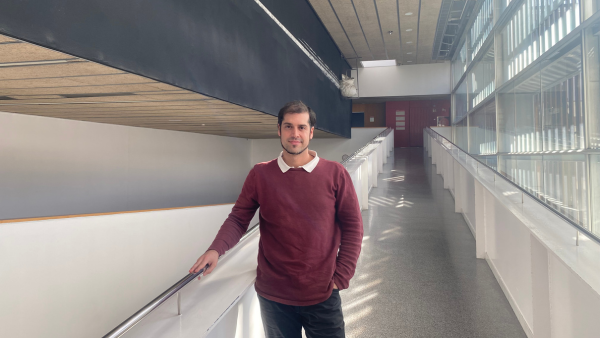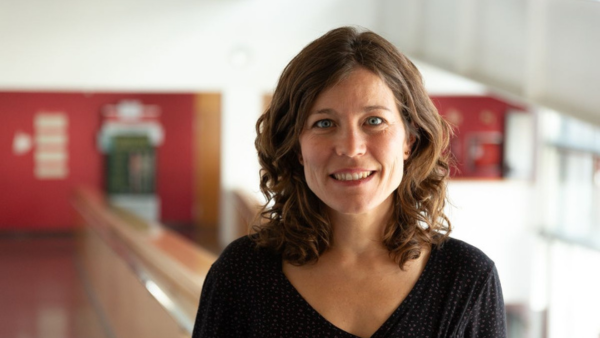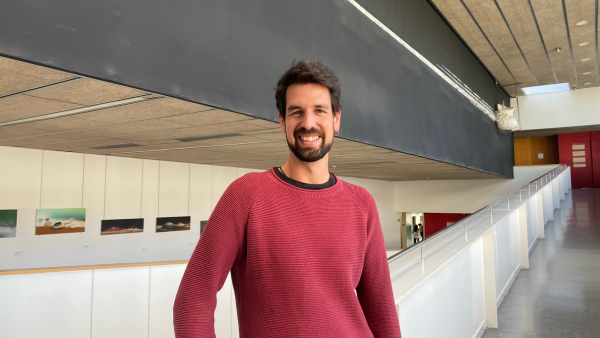Entrevista a la doctorand Nayanika Das
Research group: Research Group Bioinformatics and Bioimaging
Doctoral Program: PhD in Bioinformatics
Tell us about your career prior to joining Uvic as a doctoral student?
I did my Bachelors in Biotechnology, Masters in Bioinformatics from India. While pursuing my Masters degree, I gradually gained knowledge in the field of computational modeling, structural biology, systems biology, machine learning, protein-ligand interactions, Perl, Python and R language, transcriptomics, proteomics, phylogeny, immunoinformatics, pathways and networks.Masters dissertation project was based on finding novel inhibitors that can stop the effects of NRAS (neuroblastoma RAS viral oncogene) protein in Melanoma.
Former 2.4 years Experienced Editorial Assistant, Peer Review Advisor At Springer Nature in the Scientific Article Publication Process, where I learnt the ethics, scientific literature review and editorial process of different parts of scientific research. Dealing with authors, editors, advisors and reviewers all around the globe made me strong in the field of media and professional communication.
What made you decide to start the PhD?
I describe myself as a person who works with dedication and enthusiasm and who can abide by schedules and deadlines. I have always seen self-motivation in me to pursue a doctoral degree. My short-term research goal is to further expand my skills, knowledge in this field and in the long run I will continue to apply my computational knowledge in new challenges, develop new methodologies that will help to contribute to the community.
What is the title and field of study of your thesis?
Research Highlight: Investigating The Structural and Functional Changes Due to Variations In Redox-Regulating Glutathione Peroxidases and Thioredoxin Reductases. I am trying to understand the effect of mutations on the Glutathione Peroxidases and Thioredoxin Reductases mechanism, structure and protein interaction network by Computational Biology Approach
Could you explain for a non-expert audience what are the main objectives of your thesis and what might be the impact of the results at a scientific or social level?
The main objective is to understand how exactly the above mentioned Glutathione and Thioredoxin mechanism work with cysteine and selenocysteine in the body at atomic level, also to understand the effect of mutations in the mechanism, structure and protein interactions, gene expression, metabolic pathways. The impact of which will pave a way to understand if they play a role in causing the oxidative stress in cancer which leads to tumorigenesis or are involved in cancer protection.
How long have you been doing the thesis and what have been the main results and the main difficulties so far?
I have just completed my first year of thesis, the main difficulties were to collect information on the mechanism of the two proteins which is still unknown, so we are running the quantum mechanical calculations of them. And the main interactions have not been well studied yet, so we are going to work on docking and simulations of them. The results I have now is the important structures, sequences of all the species, the homologues of the structures and a well comparison of the sequences and structures of all the isoforms of these proteins present.
How do you value this stage on a personal level and what needs have you been able to identify to improve the quality of life of doctoral students?
This is a very unique stage of life where we know a lot of new things and get to brush up all that we have known so far. It is more like understanding the priorities and managing the time accordingly for all the tasks that are involved on a daily basis. I feel the most important need for a doctoral student is mentally and physically being able to take care of oneself everyday. Trying to involve with everyone who are in the field or not and getting to know their way of work, while keeping in mind how to set your own time table.
What advice would you give to a colleague who wants to start a PhD?
There are several that one needs. I would only say, try motivating yourself from time to time. Keep networking and connecting to as many people as one can in conferences or by social media platforms or face-to-face. Never try solving all problems on your own, try reaching out to the professors or whosoever knows more than you. Lastly, never show you know everything, because there is always someone knowing something more, try getting as much knowledge as possible, and make most of this time !





